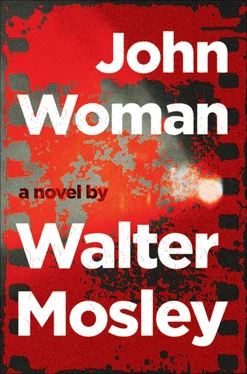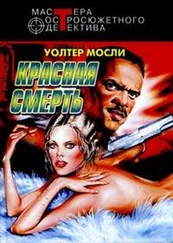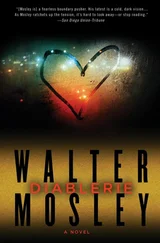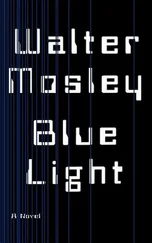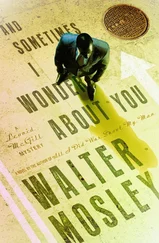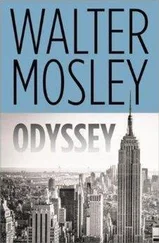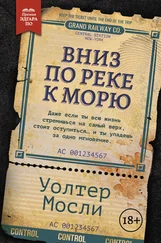He was thinking about Herman, about how his father should have been there instead. In that hermeneutical instant he felt his father’s smile.
What you have done is good, the elder said, momentarily free from the grave, but not yet (at the level of) Thucydides — not yet a man of his age documenting the world while participating in its unfolding.
John stopped there at the railing, in the middle of the great architectural achievement of NUSW. The ghost of his father had never spoken to him before. Herman Jones was a mild man who would not, even as a spirit, haunt anyone. He was too gentle and considerate to bring fear, pain or disorientation to the soul of another.
“I’m exhorting him,” John whispered. “No, I am calling on him because there is a danger somewhere.”
He looked down from the high floor of the hollow structure. Green light filtered through the roof, tinting the rotunda and the people laughing, eating and reading on the alabaster benches below. He could hear voices but an acoustic trick garbled the words, making them turn in on themselves so that although they still contained humanity, the meaning was stripped away.
And so language, sweet language, Herman had said years before, stays alive. All the so-called dead tongues survive in the words extant today. That is just another example of how you cannot know history but at the same time you will not escape it.
John wasn’t resisting his father’s presence now. He was exhausted from the desert heat, the self-imposed challenge of teaching without notes and the threat contained in the words of Theron James...
“Professor Woman?”
“Yes?” he said, turning.
It was a young woman in a dark red dress that was formfitting at the bodice but which flared out on its way down to her knees. It was an old-fashioned outfit reminiscent of the fifties TV shows John sometimes watched on late night.
She was a bright brown girl with almond-shaped dark eyes. The young professor did not know her.
“I looked up your class schedule and it said that Decon met in Hall Thirty-Six,” she said, her tone imparting an apology. “I was waiting outside but when the class was over it wasn’t yours at all.”
“I taught Decon, as you call it, in Thirty-Six my first two years,” John said.
“I guess they didn’t enter the new number in the semester schedule,” she said. And then, “I’m Tyne, Tyne Oliver.”
“And why were you looking for me, Ms. Oliver?”
“Oh,” she replied lifting her shoulders to express the recognition of her oversight, “sorry. President Luckfeld.”
John raised his eyebrows and turned his left palm up. He was enjoying the dysfunction of the conversation: her speaking in fragments and his resorting to sign language.
“He wants to see you,” she added.
“President Luckfeld does?”
“Yes.”
“When?”
“Right after your class,” Tyne replied. “I got there five minutes before it was supposed to be through but then it wasn’t you. Dean James saw me and asked why I looked so confused.”
“And he sent you to room two.”
Tyne Oliver smiled and nodded.
Herman Jones receded into the ether. John was aware of him as he was of the tinted sunlight and the television shows that were brought to mind by the cut of Tyne Oliver’s dress.
Walking in the desert sun Tyne talked and talked.
She was from Montclair, New Jersey, but hated the winter and came out west for school. That was two years ago. She hadn’t been back home since. Her father died in the first week of her freshman year and though she thought she should go to the funeral she didn’t.
“... He wasn’t my real father,” she explained. “I didn’t know my biological dad and Harold, my stepfather, never adopted me or my brother, and it was my first week at school. Harold didn’t have life insurance and all my mom owned was the house so she couldn’t pay for me flying out. My grandfather left a college fund for me and Toby, my brother, and mom said that I’d have to use some of that to come back home. But it was way expensive and Harold wasn’t my father and anyway it was only the first week of school and I’d miss so much that I finally didn’t come but sent flowers instead.”
John listened closely thinking about the concept of jabber: trillions of words squandered in air containing the emotional, organizational and social backgrounds of any and all eras.
“Here we are,” Tyne said.
The administrative offices of NUSW were opposite in many ways to the blue-and-white classroom building. The dun-colored bungalows were herded together in a compound surrounded by high adobe walls painted salmon pink. The office complex was accessible by only one gate, which was watched over by round-the-clock security guards. “Hi, Mr. Gustav,” Tyne said through a microphone mounted on the outside of the gate.
The guard, John knew, sat in a small air-conditioned booth watching the entrance through the iron bars of the green gate and on a bank of monitors that gave him a three-hundred-sixty-degree view around the fortress.
“Tyne, Professor Woman,” the sixtysomething white-mustachioed guardian said over an electronic speaker.
John imagined Mr. Gustav looking down at his monitors, then, when he was assured that there was no mischief afoot, he hit a button and the electronically controlled gate rolled noisily aside.
Tyne bounded in followed by the young professor. They each nodded at the guardian. John would have stopped to talk with Lawrence Gustav if he were unaccompanied. He liked talking, seeing each person as a historical repository that leaked secrets like so many corroded gas tanks.
The bungalows, laid out like a country village, were uniform single-story structures except for the president’s office. This two-story building was reddish brown and most resembled the shape of a naturally formed rectangular desert stone. It seemed to lean to the left and the windows were at an odd angle to the ground. The crenellated plaster walls were uneven with grooves and ridges like actual stone. The doorway was unobstructed whenever John had been there. He wondered if there was a door at all.
There might not be, he thought, knowing that NUSW was founded and run by members of the secretive Platinum Path, a self-described new age religion founded by the guru of meta-psychic-determinism — Service Tellman. The Platinum Path subscribed to Tellman’s theory that the manifestation of the universal unconscious could be controlled by certain strong-minded individuals working in concert. Only these individuals, Tellman taught, could guide the world to its full potential, that it was the destiny of such men and women to deliver the world from the suicidal Iron Path that it had been on ever since the Industrial Revolution.
Service Tellman died seven years before, leaving a group called The Dozen to keep the dream on course. The university president, Colin Luckfeld, was suspected to be a member of this committee; at least that was what John had read in a Wall Street Journal exposé. NUSW was Tellman’s pet project. Construction was completed eleven years before. And, considering the philosophical proclivities of the Platinum Path, John thought that there might be a wall, an iron gate and an armed guard but still no door barring entry once you’d made it to the inner circle. Such a design would be an apt totem of the elite cult.
“Go right on in, Professor Woman,” the chatty, anachronistically clad Tyne Oliver said. “He’s upstairs.”
“Don’t you work here?”
“No, sir, I’m in the bursar’s office this semester. President Luckfeld’s assistant called me because I’m a floater until my senior year. Floaters always do most of the foot-errands.”
Читать дальше
